Keynote Forum
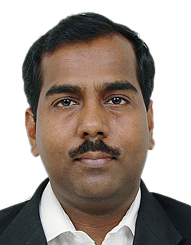
Amar Kumar Jamadhiar
Shippensburg University IndiaTitle: From Internet access devices usage to behavioural model
Abstract:
India has made reasonable progress in improving access to last-mile healthcare over the last decade. However, the improved access has not reached the 29 states equally In addition, existing facilities, both public and private, face acute shortage of qualified personnel (fully trained doctors, lab technicians) as well as facilities and medical supplies. A large proportion of population (10,000+ per lakh) suffer from chronic illnesses, however, less than 50% of them seek treatment for the same.
Biography:
A passionate business leader with 20+ years of global experience in developing and delivering innovative solution across various domains with focus on healthcare. An Alumnus of IIMC (IIM Calcutta) & SHIP (Shippensburg University, PA USA) as well incubatee at IIMC Inniovation Park, I founded Medi360, A Tele-Health service provider with a vision to provide accessible and affordable quality primary healthcare services across rural India.
At a personal level, I always had interest in working for an affordable technology solution that can benefit underserved Indian population at large. I quit my job in 2015 and founded Medi360 with a vision to make Medi360 as default primary healthcare service provider in all rural/undeserved population of India with a vision to make a measurable impact ( 5 millions individual per year within the next 5 years).
Speakers

Masumi Kikuchi
The University of Tokyo, Japan JapanTitle: Artificial intelligence applied in business operations
Abstract:
The rural tourism is started in Fanggan village since 1998. The main industry was converted from agriculture to the rural tourism in this village. However, farm lands and the number of agricultural workers has been greatly reduced, it cannot simply be optimistic about the future of the village to only focus on tourism. The rural tourism is very popular there are similar rural tourism at many villages in China. Fanggan village is also already face to the next step to explore the features to their own unique development strategies. Every business are managements by the village collective group in this village. Except for the rural tourism industry, they have the nursing homes, the rehabilitation center, and many second-houses for urban people s such as the welfare health preservation industry. Their tourism has evolved from the rule tourism to the health tourism certunly. They understand the changes and demands of society, thereby making the development style of the village.
Biography:
Masumi Kikuchi is an Associate Professor in College of Arts and Sciences, the University of Tokyo. She holds a Ph.D. in International Relations, University of Waseda. She worked in Chinese Universities for 4 years (Guangdong Peizheng College and Qingdao University of Technology). She is researching about national resources management, environment policy, eco-tourism in Asia, especially in China, Japan, and the Southeast Asia. Her representative book is “Nouson-Keikan no Shigen-ka (Process of the Rural Landscape as New Resource – The Dynamic Strategy for Rice Terracces Conservation in Chinese Village Communities)” Ochanomizu-shobo press, 2016. Although the multifaceted functions of agriculture are emphasized and the beauty of rural landscapes is highly appreciated, few farmers are able to make a living from such landscapes. This book asks whether it is possible for farmers to create livelihoods sustained by a rural landscape within a market economy amidst agricultural decline and the impoverishment of rural communities. To achieve this aim, "Resourcification of the Rural Landscape," which forms the title of this book, is necessary. "Resourcification of the Rural Landscape" is considered using field surveys.
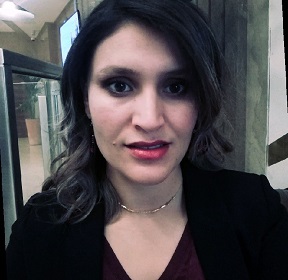
Monica Reda Ghazal
American university of Cairo, Egypt EgyptTitle: Optimizing Heuristic Search Algorithms using Neural Networks
Abstract:
Medical Tourism is a fast growing industry which has at least 25% growth globally per year by 2025 (Medical Tourism Magazine, 2015), which is a huge growth comparing to other industries, this definition means that people travel from their countries to another to get their medical care and seeking tourism, it has a remarkable impact and competitive advantage on the other industries with a direct paid services to the health care providers and on the other hand other countries recognize medical tourism as lucrative opportunity to generate the national income and boost up the economy indirectly enhance the capacity of service providers to handle this type of tourists (AYOUB, 2017). Many challenges are there to appear with each country that include visa issuing, different currencies, international accreditations, language barrier, digital marketing ,cost ,political condition, climate, international insurances (as many patients already covered with international insurances which cover them outside their countries ) branding, country positioning and ranking in medical tourism .
Biography:
Monica Ghazal is an experienced pharmacist by profession and works with more than one of the private international health care facilities in Egypt in the field of medical tourism. She holds a BSc in pharmacy and also Post graduated of Master of Business Administration degree (MBA) major in project management. Monica has 6 years’ experience in pharmaceutical practice and 4 other years in medical tourism industry. She has professional certified trainer from the American university of Cairo also been involved in Digital marketing online and offline branding regarding the field of medical tourism and its inquiries in Egypt. Also completed marketing diploma from Victoria business school she has presented her healthcare group in many international medical tourism events, international associations and embassies. Monica is interested in patient counseling and customer behavior
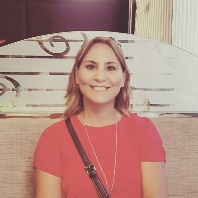
Farah Jemili
Lab West Health Centre, Canada CanadaTitle: Design thinking approach to an Artificial intelligence solution for the Match CV problem
Abstract:
AI is a hot topic in healthcare, sparking ongoing debate about the ethical, clinical, and financial pros and cons of relying on algorithms for patient care. It could revolutionize healthcare over the next few decades, but only if stakeholders focus on building the right data-driven foundations now. It is also poised to become a transformational force in healthcare. How will providers and patients benefit from the impact of AI-driven tools? At the recent World Medical Innovation Forum (WMIF) on Artificial Intelligence presented by Partners Healthcare, a leading researchers and clinical faculty members showcased the Twelve technologies and areas of the healthcare industry that are most likely to see a major impact from Artificial Intelligence within the next decade. Brain-computer interfaces (BCIs) - backed by Artificial Intelligence could restore those fundamental experiences to those who feared them lost forever, in Neurological diseases and Trauma to Nervous system. Radiology Tools - Artificial Intelligence will enable the next generation of radiology tools that are accurate and detailed enough to replace the need for tissue samples/biopsies in some cases. Shortage - Artificial Intelligence could help mitigate the impacts of deficit of Healthcare Personnel, in Underserved and developing regions. Electron Health Record - developers are now using Artificial Intelligence to create more intuitive interfaces and automate some of the routine processes that consume so much of a Doctors and Nurses time. Infection Patterns - Electronic Health Record data with Artificial Intelligence can help to Identify Infection Patterns and highlight patients at risk before they begin to show symptoms. Digital Pathology - and Artificial Intelligence can deliver accurate and faster diagnosis with extremely large digital images can allow providers to identify minor details that may escape the human eye. Medical Devices - In the Medicine environment, Smart Devices are critical for monitoring patients in the ICU and elsewhere. Inserting Artificial intelligence algorithms into these devices can reduce cognitive burdens for physicians while ensuring that patients receive care in as timely a manner as possible. Immune Therapy - Artificial Intelligence algorithms and their ability to synthesize highly complex datasets may be able to illuminate new options for targeting therapies to an individual’s unique genetic makeup. Reliable Predictor - Artificial Intelligence analytics have produced many successful Risk Scoring and Stratification Tools, especially when researchers employ Deep Learning techniques to identify novel connections between seemingly unrelated datasets. Wearables - Artificial Intelligence will play a significant role in extracting actionable insights from this large and varied treasure of data. Smart Phones - The quality of cell phone cameras is increasing every year and can produce images that are viable for analysis by Artificial Intelligence algorithms. In this Dermatology and Ophthalmology are early beneficiaries of this trend. Bedside Monitors - Artificial intelligence can provide earlier warnings for conditions like Seizures or Sepsis, which often require intensive analysis of highly complex datasets. Early alerting is one of the most promising areas of development for this revolutionary approach to data analysis.
Biography:
Dr Bhagvanth R Gunna is Surgeon by Profession working in Canada. He studied Medicine (MBBS) in KMC, Warangal, India and graduated in 1978. After Graduation, he was trained in Jamaica, Ireland and United Kingdom in Surgery and Surgical Specialties and obtained his FRCS from Royal College of Glasgow in 1987. After surgical training, he worked as Consultant Surgeon in Ireland for almost 5 Years till 1995. Later he returned to Hyderabad, India and worked as Laparoscopic Surgeon and Surgical Gastroenterologist at Apollo Hospitals, Jubilee Hills, Hyderabad, till 2008. In 2009, he got an offer from LG Health, NL, Canada and moved there. Presently he is working in Canada as a Laparoscopic Surgeon and Surgical Gastroenterologist. In 2001, he was awarded Fellowship (FRCS) without Examination by Royal College of Surgeons of Edinburgh, UK. He was then appointed as Examiner and Surgical Tutor for MRCS, by Royal College of Surgeons of Edinburgh. He was also Inspector for National Board of Examination and visited and Inspected several Private Healthcare facilities in India in view of granting DNB seats. He has MBA degree from Frankfurt School of Finance & Management, Germany in International Healthcare Management.
Keynote Forum
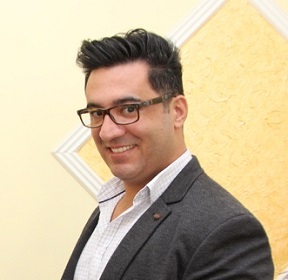
Daniel Amobtiwon Amoatika
University of Ghana, Accra GhanaTitle: Data-driven decision making - Guiding organizations towards an “AI proof” status
Abstract:
Cholera is a major health problem facing most developing countries. Globally, 132, 121 cholera cases were reported in 2016. About 54% of these cases were recorded in Africa. Between June 2014 and January 2015, a total of 28,922 cholera cases including 243 deaths were reported in Ghana. WHO estimates that the true incidence of Cholera far exceeds the reported cases. We evaluated the cholera surveillance system to determine whether the system was meeting its objectives, and to assess its attributes. We evaluated the cholera surveillance system in the Ga East municipality. We interviewed staff of the GEMA on the operation of the system. We used semi structured questionnaire to assess the attributes of the system. We reviewed data from the weekly and monthly IDSR and also from the district Health information management system from 2012-2016. We also reviewed annual reports and scientific papers. We applied the Centers for Disease Control and Prevention (CDC) updated Guidelines for Evaluating Public Health Surveillance Systems. Summarized descriptive analysis of qualitative data was done and presented in graphs and charts. The cholera surveillance is well situated in the IDSR. The case definition is clear, simple and easy to apply. The system is able to detect cases and notify the next level. The data matches with the case base forms. However, the entries in the case base forms were not complete. Positive predictive value could not be assessed as no single case was confirmed by laboratory test. CBSVs attrition was high in the municipality. However, Community health nurses were used as a replacement for the CBSVs. The system is meeting some of its objectives. The system is simple, flexible and acceptable. The system is fairly representative, stable but the data quality is low. Sentinel surveillance should be implemented as routine training of healthcare workers on reporting and proper documentation of suspected cases.
Biography:
Daniel Amobtiwon Amoatika is a nurse by profession and works with one of the private hospitals in Ghana. He holds a BSc in Nursing and currently pursuing a Master of Philosophy degree in Applied Epidemiology and Diseases Control at the School of Public Health, University of Ghana. Daniel has 2 years of public practice and 3 years of private practices as a nurse. He has also been involved in outbreak investigations of infectious diseases in Ghana. He has presented an abstract on money handling practices among food vendors in the University of Ghana at the 1th TEPHINET conference in Thailand. Daniel grew up in one of the remote villages of Ghana and is passionate about controlling infectious diseases.
Speakers
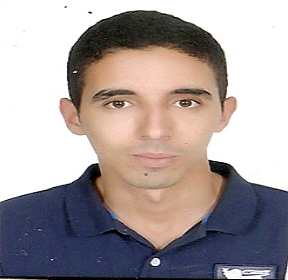
Dr Narmina Rufat Abdullayeva
Mehran University of ET, Brazil BrazilTitle: Trust in Artificial Intelligence: What do we know and why is it important?
Abstract:
Summarized descriptive analysis of qualitative data was done and presented in graphs and charts. The cholera surveillance is well situated in the IDSR. The case definition is clear, simple and easy to apply. The system is able to detect cases and notify the next level. The data matches with the case base forms. However, the entries in the case base forms were not complete. Positive predictive value could not be assessed as no single case was confirmed by laboratory test. CBSVs attrition was high in the municipality. However, Community health nurses were used as a replacement for the CBSVs. The system is meeting some of its objectives. The system is simple, flexible and acceptable. The system is fairly representative, stable but the data quality is low. Sentinel surveillance should be implemented as routine training of healthcare workers on reporting and proper documentation of suspected cases.
Biography:
Narmina Rufat Abdullayeva is a nurse by profession and works with one of the private hospitals in Ghana. He holds a BSc in Nursing and currently pursuing a Master of Philosophy degree in Applied Epidemiology and Diseases Control at the School of Public Health, University of Ghana. Daniel has 2 years of public practice and 3 years of private practices as a nurse. He has also been involved in outbreak investigations of infectious diseases in Ghana. He has presented an abstract on money handling practices among food vendors in the University of Ghana at the 1th TEPHINET conference in Thailand. Daniel grew up in one of the remote villages of Ghana and is passionate about controlling infectious diseases
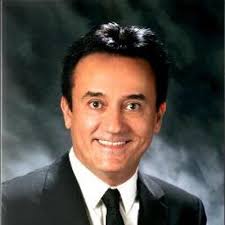
Dr Bilal Shams
American university of Cairo, Colombia ColombiaTitle: Facial detection and recognition in social networks (Images, videos)
Abstract:
Another big challenge for medical tourism is the advancement and the country positioning through the medical services, hygiene and how advance they are, do they have a big names and experts in surgeries!!, do you have any expert in sub-specialties !! Those are the client questions .also preparing some touristic trips with reasonable prices will support your trust ability and reputation. Some countries are preferable destination for the war injury patients, those patients saw the death by their eyes .this is another challenge that face health care provider as they need psychological treatment beside their medical treatment with a special consideration, fortunately the governments cover all their medical trip and their full treatment and travel back safe to their country. Finally medical tourism consist of two words which are medical and tourism the fastest growing industries in the whole world (By Dr. Tomislav Meštrović, 2018), having many challenges to fortify the business future in the country, association and also the expert consultants will reflect a good reputation by good plan and strategy to invade this niche market .
Biography:
Bilal Shams is an experienced pharmacist by profession and works with more than one of the private international health care facilities in Egypt in the field of medical tourism. She holds a BSc in pharmacy and also Post graduated of Master of Business Administration degree (MBA) major in project management. Monica has 6 years’ experience in pharmaceutical practice and 4 other years in medical tourism industry. She has professional certified trainer from the American university of Cairo also been involved in Digital marketing online and offline branding regarding the field of medical tourism and its inquiries in Egypt. Also completed marketing diploma from Victoria business school she has presented her healthcare group in many international medical tourism events, international associations and embassies. Monica is interested in patient counseling and customer behavior

Jay Janardan Shukla
Cranfield University IndiaTitle: Prevalence, Risk factors and Antibiotic Resistance of Staphylococcus aureus and MRSA nasal carriage among healthy population in Ibadan, Nigeria
Abstract:
Digital is playing a vital role in taking healthcare services to next level independently. Same role of Digital is seen in playing for making it convenient for Medical Traveler. Statistics claim that digital health market generated revenue over USD 51.3 billion for the year of 2015 and is further predicted to record a remarkable valuation of over USD 379 billion by 2024, growing at a robust rate of 25.9% over 2016-2024. There is remarkable increase in usage of mobile devices across the world, the demand for healthcare apps has observed a burgeoning rise. m- Health market has crossed an inflection point as mobility solutions advance and consumer adoption increases. As per Global Market Insights, Inc., worldwide m-Health segment within digital health market is expected to surpass gains over USD 205 billion by 2024, growing at an annual growth rate of 36.5% over 2016-2024. This is where the new segment within m-Health can target Medical Tourist for developing the new segment. Many companies in digital health industry are turning to tele-health and m-Health wearable to help patients with health, diet and lifestyle. This further will also help in storage of health reports as well to keep it accessible wherever the tourist travel. With intrending development in travel industry connecting people around globe, medical care for the same tourist shall be well taken care off. The mounting cost of healthcare services, operational efficiencies getting affected to manage the patient across the global, and lost opportunities have offered ample room for entrepreneurs to disrupt digital health industry and bridge the gap between service provider, government and medical traveler. With the ongoing activities and execution of cost-effective business models, digital health market is likely to witness an upward path in the years to come in Medical Tourism. The overall global eHealth is projected to reach USD 132.35 Billion by 2023 from USD 47.60 Billion in 2018, at a CAGR of 22.7% during the forecast period, boost to its Medical Tourism vertical will be significant in coming years. Electronic health records (EHR) is expected to be to be the one of the most used services by the medical traveler, this business is estimated to reach USD 139.4 billion by 2025. Capability of these systems to exchange health information electronically to provide improved patient care are major factors contributing towards business growth. These systems enable providers to more efficiently diagnose patients, diminish medical errors, and provide safer care to patients across the globe with better communication will further intensify segmental growth over the coming years. Telehealthcare business is expected to grow at 29.4% CAGR over the estimate period. However, factors distinguished as reluctance among medical professionals to adopt advanced eHealth solutions and high-cost of deployment and maintenance of eHealth solutions are likely to hinder the growth of the global eHealth market to some extent.
Biography:
After completing his graduations in chemistry he pursued masters in Clinical Research from Cranfield University, and then Post Graduation Diploma in Clinical Research Management. So along with his technical skills, consulting experience, and business sensibilities he shifted to International Marketing division with a different dimension altogether. Lately from past five years he has been associated to Health Care Tourism industry expanding the geographies in African continent CIS and SAARC countries, managing B2B and B2C marketing, direct sales corporate sales. His foundation is in Marketing, Business Development and Business Researcher and Analyst, in Healthcare Industry. He has worked in International Marketing division of pharmaceutical company than taking a paradigm shift to Hospital and Healthcare Industry as Business Development.

